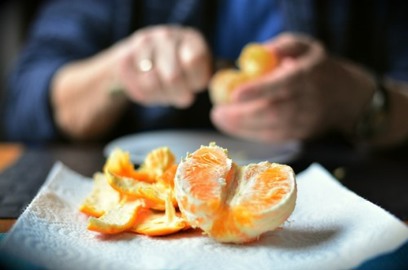Shemitah, Chapter 16: Processing Food During the Shemitah Year

Can I use shemitah oil to fry schnitzel? Can I cook a shemitah watermelon or make apricot jam? Here we will look at the common food processing methods for various types of produce and the significance for shemitah.
A. Halachic principles
- It is forbidden to change shemitah produce from its original form.[1] What this means is that the form of this produce should not be altered by processing in an unconventional manner; this is true for each type of produce individually. It is permissible to process food in any way that considered conventional for most Israelis, at least once in a while,[2] and in ways that large sections of the population often process this food, even if a minority group.[3] The standard convention needs to be reevaluated each shemitah Assessments from previous shemitah years are insufficient.
- It is possible to be lenient when it comes to standard processing methods for foods only in specific sections of the general population, such as the ethnic dishes of a particular group.[4]
- Methods for food processing considered conventional only among vegetarians and vegans, who employ these means for health reasons, do not fall under the umbrella of "conventional use of shemitah"[5]
- If it is apparent that if one does not process a certain type of produce in an unconventional manner it will be thrown away (such as in a private garden declared ownerless where people do not come to harvest the fruit, or Grade B produce that is unmarketable), it may be processed in this manner to prevent it from going to waste.[6] For produce sold through Otzar Ha'aretz, consult with a competent halachic authority.
B. Peeling
- It is permissible to peel fruits and vegetables such as cucumbers and carrots, even though their peels are edible.[7] It is also permissible to remove less desirable sections (such as outer leaves of cabbage).[8] It is best to avoid peeling edible parts of fruits and vegetables as much as possible,[9] even if the peels are discarded in a special bag or container.
- Fruits and vegetables that are not usually peeled, such as tomatoes and apricots, may be peeled as long as part of the fruit is peeled with them and set aside in a designated place.[10]
- It is permissible to peel fruit with scale insects or other pests stuck to the peel, to avoid eating insects. For the proper way to handle peels, see Chapter 18, §B.1.
C. Mashing, crushing, and grating
- Mashing and crushing sacred shemitah produce in a way that its original form is still discernable (such as mashed potatoes, bananas, or dates) is permitted even when the manner of processing is unconventional.[11] The same holds true for grating solid fruits and vegetables (such as carrots) with a grater.
- Total crushing, when the form of the original produce is no longer discernable, (tomato sauce preparation) or grinding (flour from grains) is permitted, provided that this is the conventional way to process any given type of produce.[12]
- Foods that are generally mashed, milled, or processed for babies may be prepared for them in these ways even if they are not generally prepared in these ways for adults.[13]
D. Squeezing and juicing
- It is permissible to squeeze or juice fruits and vegetables when one of the ways that they are prepared is squeezing or juicing. The litmus test is if fruit and vegetable juice is available in the market from any particular type of produce.
- It is also permissible to squeeze or juice other fruits and vegetables if most people generally use their juice,[14] such as lemons,[15] oranges,[16] and grapefruit.[17] It is also possible to be lenient with preparing apple juice, pomegranate juice and the like. However, it is forbidden to prepare juice from fruits and vegetables whose juice most people do not drink. [18] It seems that the index is if a certain type of juice is sold in regular grocery stores; today there are more and more juices like this. For this reason, it seems that it is permissible to prepare juice from the following: apples, carrots, tomatoes, cranberries, pears, passionfruit, grapefruits, tangerines, peaches, mango, strawberries, kiwi, mint (lemon-mint), pineapples, bananas, and cherries (and perhaps dates).
- Today (as of 5781) there is an ever-growing practice of preparing smoothies and frozen yogurts (at home and industrially[19]) from a broad variety of fruits and vegetables that are generally not squeezed. These include: pears, dates, avocado, kale, beets, melon, cucumbers, celery, spinach, wheat grass, and ginger, among many others. In light of this, people may blend fruits and vegetables to prepare shakes or frozen yogurt. However, other unconventional methods of crushing or otherwise processing such types of produce remains forbidden.
- When squeezing, one should try to squeeze the entire fruit and avoid straining the edible pulp.[20] For this purpose, it is permissible to use home juicers with large holes.
- It is forbidden to prepare alcoholic beverages by fermenting sacred shemitah fruit (with the exception of wine from grapes and raisins).[21] However, it is permissible to prepare liquor from citrus peels, myrtle berries, and the like.[22]
E. Cooking, frying, and baking
- Fruits and vegetables that are generally eaten cooked only may not be eaten raw (such as: potatoes, sweet potatoes, eggplants, beets, pumpkin, peanuts, corn, squash). Conversely, vegetables that are generally eaten raw (watermelon, cucumbers[23]) may not be cooked.[24]
- It is permissible to cook fruits and vegetables that most people eat both cooked and raw (such as apples, apricots, peppers, onions, cabbage, carrots, and tomatoes).
- Fruits or vegetables generally eaten raw but also conventionally used as seasoning (such as tomatoes, pepper, almonds, raisins) may be used for this purpose.[25]
- After the cooking process is complete, these fruits and vegetables may not be discarded since they are edible and have shemitah sanctity (scraps of these foods should be placed in the shemitah bin; see Chapter 19). For this reason it is also forbidden to squeeze them at this point (unless they are usually squeezed or juiced).[26]
- It is permissible to add a slice of lemon to tea to enhance its flavor.[27] After drinking the tea, the lemon should not be discarded. If one is used to eating the lemon, it is best to either squeeze it or eat it.[28]
- Herbs (such as tea leaves, mint, and tree woodworm) that grow in Israel may be used as seasoning for a dish or to prepare tea. If the herb no longer imparts flavor after use, it may be discarded[29] or squeezed. However, if it can be reused (as is common practice with tea bags), it should not be discarded.
- Frying, roasting, baking, toasting, and cooking are all considered the same manner of food processing. Any food that is generally prepared in one of these manners can be prepared in any of the other methods.[30]
- Sacred shemitah oil may be used for frying.[31]
- It is permissible to prepare jam from fruits that are conventionally used for jam,[32] such as apricots and oranges.[33] It is also permissible to candy orange peels.[34]
F. Additional food processing methods
- It is permissible to pickle vegetables that are conventionally pickled (such as cucumbers)[35] and it is permissible to use natural vinegar with shemitah sanctity, since such use does not cause it to spoil.[36]
- It is permissible to freeze fruits, juices, and soups with shemitah sanctity if this does not spoil them.[37]
- It is permissible to dry fruits and vegetables that are generally dried[38] (tomatoes, grapes, figs, dates, plums).
- It is permissible to can fruits and vegetables that are generally canned[39] (corn, apricots).
G. Miscellaneous laws
- If someone processed sacred shemitah produce in an unconventional way (such as cooking, mashing, or squeezing), even when no one usually processes a certain produce in that way, it is nevertheless permitted to eat the processed produce.[40]
- It is permissible to mix foods with shemitah sanctity with other, non-shemitah foods, even if the shemitah sanctity becomes nullified in this way.[41] However, this is forbidden if one's intention I mixing the foods is to nullify the shemitah[42]
- When preparing dishes from shemitah produce, it is permitted to weigh and measure it in any manner, since this measurement is not performed for the purpose of transaction.[43]
[1] Rambam 5:3. See also Mishpat Kohen §85. This halachah is relevant to the laws of shemitah, terumah, and ma'aser sheni: one may not change their original form. It is also relevant to the laws of berachot, since food that is significantly changed when processed loses its original blessing and only the general shehakol is said.
[2] Radbaz (Ma'aser Sheni 3:11) and Aruch Hashulchan (§24:9) maintain that we follow what the conventional use is (derech ha'olam, the way of the world), even if this is not the primary use of the produce. For this reason, Aruch Hashulchan permits preparing beer and liquor from grains, and the Radbaz permits anointing with oil, even if the oil is primarily used for food consumption. This principle is also implied by the Mishnah Berurah §205:3 vis-à-vis blessings: the Shulchan Aruch states that if a vegetable tastes better cooked than raw, when cooked its blessing is ha'adamah, while in raw form it is shehakol. Mishnah Berurah adds that if the vegetable is also eaten by most people when raw, it would nevertheless be ha'adamah. This implies that if most people also use a given vegetable for its secondary purpose, it is still considered a standard use. On squeezing oranges for juice, Chazon Ish (§25:32, s.v. veyeish) is unsure whether one should follow the majority use of the produce (if the fruit is generally eaten and not squeezed, it is forbidden to juice it during shemitah) or a significant minority use (mi'ut matzuy) of the practice. In the latter case, only fruits where at least a significant minority of their use is juicing can be squeezed/juiced during shemitah. Otherwise, we would follow what most people would want; for instance, most people want to drink orange juice, so squeezing oranges would not be considered an unusual use. Thus, oranges are considered "earmarked for squeezing." Rabbi Kook (Mishpat Kohen §85) rules that the conventional use follows the majority use of any given type of produce. See also Shabbat Ha'aretz 5:3 §4.
[3] According to Chayei Adam 1 §51, Nishmat Adam §1.
[4] There are several Talmudic and halachic discussions that deal with the local conventions of a particular place and to what extent they influence the rest of the world. See Shabbat 144b; Rambam, Kila'im 5:18; Tosafot, Shabbat 92b, s.v. ואת"ל (ve'im timtzi lomar), Magen Avraham §320:1; Chazon Ish, ibid., s.v. uvekol. See also Chukkot Ha'aretz 5:18 §§1–2.
[5] See previous note. See Mishpatei Eretz 22:4 on Radbaz I §44: some people consume rose essence (rose petal extract) for health reasons, but this does not define the plant as a fruit tree but rather a medicinal tree. This is implied by Remah, OC §320:1: even if certain fruits are generally squeezed for medicine and not drinking, use as medicine is nevertheless not considered conventional use for shemitah purposes. However, the above sources discuss healthy people who eat certain foods for health considerations, in which case this would not be considered the conventional use. However, if we are discussing a defined group of people who adopt certain eating habits to pursue a healthier diet, it might be possible to define them as an ethnic group. That is, if this group of people generally uses or processes a particular type of produce in a specific fashion, it would be considered a conventional use. This issue requires further investigation. In any case, even when eating or drinking a certain food for medical reasons, one should nevertheless say a blessing on it. See Shulchan Aruch, OC §204:8.
[6] This is the ruling of Rabbi Eliahu, since if it will spoil without this action, this is considered darko, the conventional manner. Rabbi Ariel rules accordingly, based on the rulings of Rabbi Avraham Steinberg and Rabbi Nachum Weidenfeld (Beit Ridbaz, Mishmeret Lehabayit, pp. 21–23). Rabbi Yisraeli rules that it is possible to be lenient only when performing this action indirectly (grama).
[7] Chazon Ish §14:10, s.v. nireh; Rabbi Zilber, Hilchot Shevi'it §5, Kise David §9; Mishnat Binyamin §42.
[8] Pe'at Hashulchan §24:3 states that we are not obligated to eat the sections of vegetables that are generally cut off. This implies that it is permitted to cut off these parts. See also Rambam 5:3.
[9] Mishpat Kohen §85; Sefer Hashemitah 7:3 §2 (p. 31); Kerem Tziyon 14:2; Mishnat Binyamin §42 believes that one should not cut the peel with some of the flesh if this is only to finish peeling more quickly, or for any other reason.
[10] Peirot Shevi'it 18:5, quoting Rabbi Elyashiv.
[11] Rambam, Terumot 11:2; Pe'at Hashulchan §24:4. See also Mishpat Kohen, ibid. and Shabbat Ha'aretz 5:3 §4, nn. 34–35.
[12] Based on Mishpat Kohen, ibid.
[13] Mishpatei Eretz 22:16 and n. 35, quoting Rabbi Elyashiv.
[14] Rambam (Ma'aser Sheni 3:11) prohibits preparing juice from any produce other than grapes and olives. See Katif Shevi'it 62:20 n. 31.
[15] Lemons are rarely eaten on their own; their general use is lemon juice. Tosefta (6:6) permits squeezing herbs, and lemons impart flavor like herbs. The following rule accordingly: Chazon Ish §25:32, s.v. velimon; Kerem Tziyon 13:8.
[16] Chazon Ish §25:32, s.v. omnam; Kerem Tziyon, ch. 13, Gidulei Tziyon §2; Rabbi Auerbach: Kerem Tziyon, ibid. §1, Minchat Shlomo §46. See also Mishpatei Eretz 22:14.
[17] Rabbi Eliahu forbids preparing apple juice from shemitah apples.
[18] Kerem Tziyon 13:8 on juicing carrots or tomatoes. This is Rabbi Eliahu's ruling.
[19] See smoothie menus of various smoothie and frozen yogurt companies, such as Rebar: https://www.rebar.co.il/; Tamara: https://www.facebook.com/tamara.telaviv/; and Shakeit (selling prepackaged frozen fruit and vegetable smoothie ingredients in supermarkets): https://www.shakeit.co.il/.
[20] Chazon Ish §25:32; Rabbi Auerbach (Kerem Tziyon ch. 13, Gidulei Tziyon §1; Minchat Shlomo §46). See also Mishpatei Eretz 22:14.
[21] Pe'at Hashulchan §24:4, that it is forbidden to prepare wine from apples or liquor from dates. See also Shabbat Ha'aretz 5:3 §4. However, if it is clear that a certain product is conventionally juiced in the drink industry, it seems that this would be permitted. On adding shemitah cherries to wine to prepare cherry wine (vishniac), see Hilchot Shevi'it §5, Kise David §35, who writes that technically this is permissible, but refined individuals should be stringent. It seems that it is permitted to use shemitah wine to prepare cherry vishniac, since it enhances the taste of the wine. This is implied by Mishpat Kohen §85, who deals with the issue of inomilin (אינומילין, explained by various commentaries as a mixture of wine and honey, or wine, honey and pepper, or simply wine mixed with other ingredients).
[22] Citrus peels are generally meant for animal fodder; using them for human food enhances their status. This is why it is permissible to use the peels for this purpose, even though when the peels are soaked in alcohol they can no longer be used for anything. With regard to myrtle berries, they are not generally eaten and it seems that they therefore do not have shemitah sanctity to begin with. Even if we say that they have shemitah sanctity (see Bartenura on Ma'aserot 1:3, s.v. vechol hashechorim), it would only be so if the one harvesting or planting the myrtles did so for this purpose, so it would nevertheless be permitted to use them in this way.
[23] It seems that pickling and cooking are two essentially different processes. While there are halachot that consider pickled foods cooked (kavush kamevushal), this has no bearing on shemitah-related laws. Therefore, while cucumbers are conventionally pickled, it is forbidden to cook them. This is the ruling of Rabbi Elyashiv, Mishpatei Eretz 22:3.
[24] Rambam 5:3. The rationale for this mitzvah is that preparing the fruit or vegetable in a different way than its standard form of consumption is considered hefsed (and shemitah food may be eaten, but not destroyed—"לאכלה ולא להפסד"). Some posit that there is a prohibition of changing the mode of regular consumption that is independent of the prohibition of hefsed; these posekim hold that there is a Scriptural decree to eat sacred produce in conventional manners only. See Rash 8:2, s.v. yerushalmi; see also Shabbat Ha'aretz 5:3, n. 2. About the conventional manner of food preparation only in a certain part of the general population, see above, §A.1–3.
[25] Mishpat Kohen §85, based on Pe'at Hashulchan §24:15. See also Shabbat Ha'aretz 5:3 §5, n.42–43, 5:22, n. 3; Mishpatei Eretz 22:8.
[26] Kerem Tziyon 13:5,7; Mishnat Yosef I, p. 121.
[27] Hilchot Shevi'it §5, Kise David §34.
[28] Hilchot Shevi'it, ibid., notes that it is permitted to discard it, however it is best to be stringent and squeeze it thoroughly with a spoon before discarding it; in general, it is difficult to be lenient with lemons, since the taste of the lemon remains even after its use. See ibid., §6, Kise David §57.
[29] Rambam 5:22. See Shabbat Ha'aretz, ibid.
[30] This is the ruling of Rabbi Eliahu; Rabbi Elyashiv is quoted as having the same ruling, Mishpatei Eretz 22:3. Rabbi Eliahu adds that it is forbidden to perform an unconventional action with the food that would cause other people to not want to eat it.
[31] Mishpatei Eretz 22:7 and n. 15, quoting Rabbi Elyashiv. Elsewhere (21:7 and n. 10) he is quoted that one should not oil a pan or tin with shemitah oil to prevent foods from adhering to it, unless the oil is also meant to enhance the taste of the dish. Rabbi Eliahu is lenient in such cases.
[32] Chazon Ish §25:32, s.v. min, permits preparing pudilla, which apparently is a type of jam. Hilchot Shevi'it (§5, Kise David §18) adds that the it is better to be stringent that the form of the produce be recognizable a bit (just as we are stringent with blessings, where we say ha'eitz only if there are recognizable bits of fruit in the mixture; Shulchan Aruch, OC §202:7, and Mishnah Berurah). This is the ruling of Rabbi Ariel.
[33] According to Rabbi Kook (Mishpat Kohen §44, 45; Da'at Kohen §240) it is forbidden to prepare jam from oranges, since this is not a widespread use of oranges; he only permits this for orange peels (these are often used commercially to prepare drinks, jams, and candy).
[34] Mishpat Kohen, ibid.; Da'at Kohen, ibid.
[35] Sefer Hashemitah, p. 29 §2; Kerem Tziyon 13:2. Chazon Ish (§14:12, s.v. tanya) adds that it is forbidden to pickle large quantities for long-term storage, since it is considered commercial.
[36] This is the ruling of Rabbi Eliahu, who explains that Rambam (Terumot 11:4), who forbids pickling onions in terumah vinegar, forbids it only because the onion completely spoils the vinegar (see Radbaz, ibid.). However, when pickling vegetables in vinegar, the vinegar does not become spoiled and can be reused, even if it isn't generally used again. This is the ruling of Rabbi Yisraeli. See also Hilchot Shevi'it §5, Kise David §40, who permits pickling in vinegar since it is generally used for pickling and is not normally eaten on its own as in Chazal's time.
[37] This is the ruling of both Rabbi Yisraeli and Rabbi Eliahu. Their reasoning is that even if these products won't be edible when frozen, it is permitted to freeze them since a change that can revert to its original state is not considered spoiling the food. Aruch Hashulchan (24:8) states that it is forbidden to congeal drinks. Rabbi Elyashiv, however (qtd. in Mishpatei Eretz §22, n. 29) permits this as coagulation increases the drink's importance.
[38] Tosefta 6:29, 8:2, 4:16; see Tosefta Kepeshutah pp. 541, 571. It is permitted even when performed directly, and not only indirectly via sunlight. See Shabbat Ha'aretz 5:3 §4 and n. 28.
[39] Canning produce is considered pickling, and is permitted for foods that are conventionally canned. If the canning process includes cooking, this is permitted for foods that are generally prepared in this manner. Rabbi Ariel adds that when there are leftovers of a particular fruit of vegetable and one is concerned that they will be discarded unless canned, it is permitted to do so even if it is not a food that is generally preserved in this way.
[40] Pe'at Hashulchan §24:4. According to Rabbi Kook (Mishpat Kohen §85, s.v. umah shekatuv), it is possible that it is even a mitzvah to eat the food in this state so that it will not be thrown away or spoil.
[41] Rabbi Frank, Kerem Tziyon, ch. 13, Gaon Tzvi §2; Rabbi Auerbach: Kerem Tziyon, ibid., Gidulei Tziyon §1, Minchat Shlomo §46, who writes that the prohibition of hefsed is not a function of the food's sanctity (as is the case with terumah), rather of the fact that the produce is rendered ownerless. Therefore, people only have the privilege of taking this produce if they intend to eat it, not to waste it. At the same time, there is no biblical obligation to eat this produce in its sacred state. For this reason, it would be permitted to mix it together with non-sacred food (thereby nullifying its sacred status, if it is a minority of the food mixture).
Some forbid this: Rabbi Yisraeli, and implied by: Pe'at Hashulchan §27:45; Ridbaz §7:11, s.v. vehineh; and Chazon Ish §13:8. See also Shabbat Ha'aretz 5:3, nn. 17–18.
[42] Since we may not nullify a mitzvah lechatchilah.
[43] Az Nidberu X §45, who permits this at the end of his responsum. Weighing and measuring is forbidden only in the context of commerce. In contrast, weighing produce at home and other similar actions that are performed in non-commercial contexts are permitted. See Shabbat Ha'aretz 6:3 §2. On the prohibition of measuring, see Chapter 9, §B.




